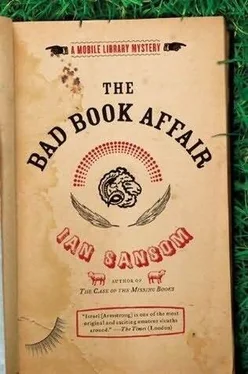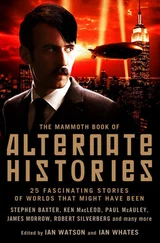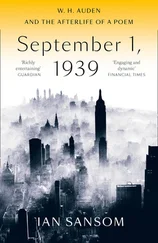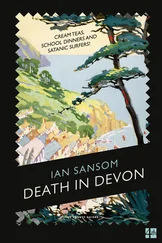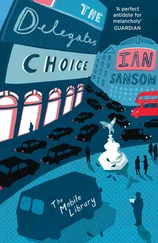1 ...8 9 10 12 13 14 ...58 “Here he comes!” said Minnie. “Quick! Sit up!”
“Macher,” said Israel.
“What!” said Ted.
“It’s Yiddish,” said Israel.
“I don’t like the sound of it,” said Ted.
“It’s just a word,” said Israel. “It means-”
“I don’t care what it means,” said Ted, “Shut up. Here comes his lordship. I’m going to give him a-”
And then there he was, in the flesh, Maurice Morris, looming over them, teeth a-sparkling, tan a-glowing, body a-facing them-whenever Maurice spoke he consciously moved his body to face the person he was talking to, so that they could feel the full force of his personality.
“Gentlemen, I’m Maurice Morris. I wonder if I can rely on your vote next Wednesday?”
“Aye,” said Ted, resolve failing, and blushing like a schoolgirl.
“Marvelous. And how about you, young man?”
Israel looked up at Maurice Morris, up at the blue suit, at the shiny tie, the rosy cheeks, the hair with some sort of shiny product in it, and he smiled.
“Nope,” he said. “Thanks.”
“Oh,” said Maurice Morris.
“He’s Jewish,” said Ted apologetically.
“Ah,” said Maurice Morris.
“What?” said Israel.
“Also, he’s not from round here,” added Ted. “So he’s probably not illegible.”
“Eligible,” corrected Israel.
“It depends if he filled in the census,” said Maurice Morris, speaking to Israel as though he were wheelchair-bound. “Did you?”
“I have no idea,” said Israel. “But I’ll not be voting for you anyway.”
“So, anyway,” said Minnie, glaring at Israel, beginning to usher Maurice Morris away.
“Well, good to meet you, gents. Enjoy your coffees,” said Maurice, ready to move on.
“Hold on,” said Israel. “I’ve got a question for you.”
“Ssshh,” said Minnie.
“No, no, fire away,” said Maurice. “Always open to questions.”
“It’s a policy question,” said Israel.
“Good,” said Maurice.
“What are you going to do about global warming?”
Global warming was one of the many things that Israel felt bad about.
Minnie frowned but Maurice smiled his weird politician’s smile. This was not the usual traybake kind of a question. This was one of those questions that he’d said something about in his brochure. One of the things that had always distinguished Maurice from his rivals, according to his campaign literature, was the sheer quality and quantity of his campaign literature; his election brochure had been printed at an expense and in a style that might more properly have been used to advertise the first release of a complex of luxury apartments in Majorca, or a major development opportunity on the north coast, and Maurice also blogged (at mnmblogspot.com), and did e-mail circulars and had a MySpace site; he was, according to his brochure, Northern Ireland’s first and most successful cyberpolitican. And he couldn’t remember for the life of him what it was he’d said in the brochure about global warming.
“That’s still one for the scientists,” he told Israel.
“Not according to the scientists it’s not,” said Israel, one of whose only companions these days was the BBC World Service late at night and early in the mornings.
“Ha!” said Maurice, changing the subject rapidly. “Well, it’s been good talking to you.”
“I would still like an answer,” said Israel.
“Sorry, I don’t think we’ve met,” said Maurice to Israel. “You are?”
“I’m a librarian,” said Israel.
“Really?” said Maurice.
The phrase “I’m a librarian” usually excited a number of depressingly predictable responses, in Israel’s experience, responses that usually began with an “Oh” and were soon followed by a vague and slightly uncomfortable look in the eye. Maurice’s response was unusual.
“The mobile librarian?” said Maurice.
“Yes,” said Israel.
“Isaac Angstrom?”
“Israel Armstrong,” said Israel. Had Maurice been reading John Updike? Couples?
“Israel Armstrong,” said Maurice, savoring the words in his mouth. “The mobile librarian.”
“Yep,” said Israel. “That’s me.”
“Well, I hope you’re ashamed of yourself, you sick bastard,” said Maurice, striding away.
“Ach, brilliant!” said Ted, again and again, after they’d left Zelda’s and they were driving to their next port of call, Tumdrum Primary School, where Israel was expected to help the children with their reading. “Brilliant! Brilliant. Priceless.”
“All right, thank you, Ted,” said Israel.
“The look on his face, but. Brilliant. Brilliant. You must have done something bad to upset him! Oh, brilliant!”
“He’s just a miserable bas-” began Israel.
“Language!” said Ted. “Mebbe he just doesn’t like the look of you.”
“Horrible,” said Israel. “A creepy, slimy, rude, horrible man.”
“Ach, he was maybe in a bad mood, just, eh? ‘I hope you’re pleased with yourself, you sick bastard!’ Oh dear, oh dear.”
“He’s got some sort of problem,” said Israel. “Personality disorder probably.”
“It’s the election, isn’t it?” said Ted. “Pressure getting to him.”
“I know the feeling,” said Israel.
“What? Pressure?”
“Yes,” said Israel. “Do you have any Nurofen?”
“Ach, wise up,” said Ted, as though Nurofen were a heroin substitute. They pulled into the school playground. “Who’d ye think ye are, Barack O’Bana?”
“Obama,” said Israel. “O. Ba. Ma.”
“Aye,” said Ted. “His family were from Kerry, weren’t they?”
“What? He’s a black man from Hawaii,” said Israel.
“I’m not arguing with you about it,” said Ted. “Just get on with it. Come on. We’re late.”
They visited the school once every two weeks, and the routine was always the same: the children would choose their books from the library under Ted’s menacing gaze and without major incident-no tears, no fights, no tantrums-and then Israel would trudge with them into the classroom for the compulsory story time, and all hell would break loose.
Israel was just not a story-time kind of a librarian: he absolutely hated children’s books, for starters. Most of them were mind-bogglingly bad, illustrated by the artistically challenged-can no one draw hands anymore?-and with words by people who clearly hated words. He was always trying to read Where the Wild Things Are or Green Eggs and Ham again, but the children, being children, wanted novelty, and the teachers wanted something more appropriate to the national curriculum’s reading strategy. So Israel would read something dull and appropriate in a dull and appropriate monotone, and the children would inevitably fidget, and then this would lead inevitably to shoving and poking, and then usually to a fight, and hence to chaos. It didn’t help that Israel also didn’t much like children, per se. He could never remember their names, or if he could remember them, he couldn’t pronounce them.
“How do you say the name of the boy with the big ears?” he asked Ted, as he always did.
“Who?” said Ted.
“The one who always asks the difficult questions.”
“Pod-rig,” said Ted.
“I thought last time you said it was more like…” He puckered up his lips. “Pahd-rag.”
“Ach, I don’t know,” said Ted. “I’m not good with these Irish names.”
“You’re Irish,” said Israel.
“I’m an Ulsterman,” said Ted.
“Right.”
“Big difference,” said Ted.
“Sure,” said Israel.
“It might be Paw-rick.”
“Right,” said Israel.
“It just depends,” said Ted.
Читать дальше
Конец ознакомительного отрывка
Купить книгу
